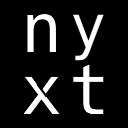2022-01-20, updated: 2024-03-12
Tested with Nyxt 3.0.0.
Nyxt annotations beat pen and paper, believe me
Observation: Currently, this feature is not part of Nyxt's last stable release (version 2.2.4). Thus, users can only access it while running Nyxt directly from source and using the master branch which is under development. To do that, please read the Developer Manual.
Studying hard might bring an unexpected outcome: chaos
We all know the feeling: you have an exam and need to learn something, so you go the nearest bookstore and buy some well-known books about the topic. Thus, you can highlight some snippets, make comments about other parts, draw arrows to connect different parts, and even glue some sticky notes in the books.
After a few weeks of dip diving, you've made multiple comments, highlighted countless snippets, and created several classifications for shared points covered in all the books about a certain topic. But- how do you search for the knowledge you created?
Furthermore, how do you see all the comments you've made? How to cluster them according to tags defined by you? How do you see all the highlighted snippets? How to filter them based on some criteria?

Well, you may try this by hand but it will be a Homeric task. What you really need is computability. If the knowledge you created about the information you read is computable, then, all the tasks mentioned are facile.
The browser as a tool for learning
Physical Books are great. However, we need to acknowledge that nowadays most people spend way more time reading content on the web rather than in physical books.
Unfortunately, people do not make highlights and annotations on the web as they would with a purchased book. Why not? Probably because they lack the right tool. At least, this is our hypothesis :)
In order to solve this class of problems, Nyxt now offers features related to annotations. It is possible to make highlights on text snippets. Moreover, the user can make comments about them. The user can even annotate the whole URL. While capturing contextualized content, it is even possible to bind tags on it.
Later, the tags will be useful because Nyxt also offers features related to information retrieval. Hence, the user can search or filter their highlight and comments.
See below for a brief demonstration:
Stay tuned and may the power of Nyxt be with you!
Did you enjoy this article? Register for our newsletter to receive the latest hacker news from the world of Lisp and browsers!
- Maximum one email per month
- Unsubscribe at any time
